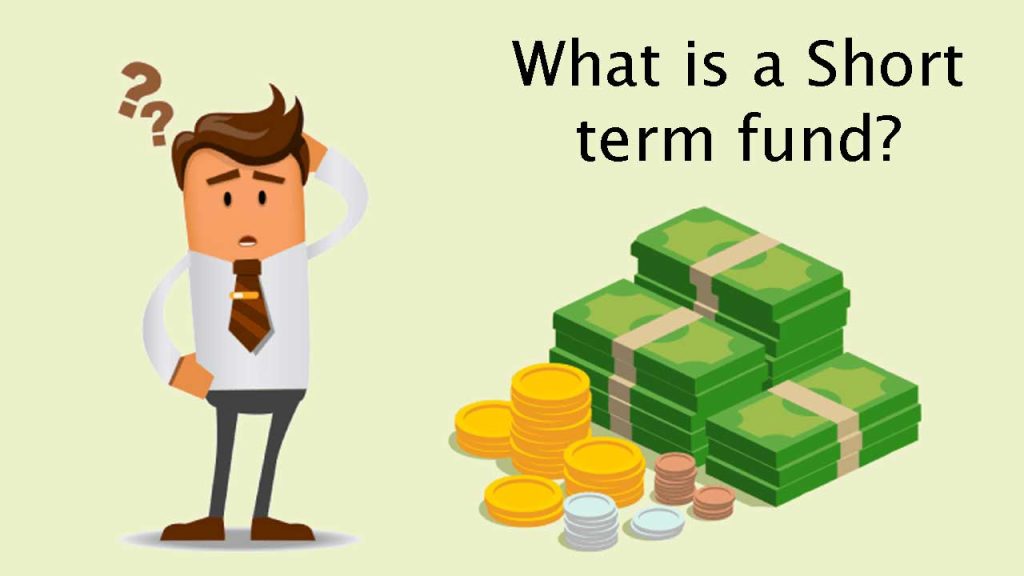Short term funds are debt funds that invest in the debt and money market securities such that the duration of the fund portfolio is between 1 to 3 years.
How do Short Term Funds Work?
To understand how short term funds work, it is necessary that first to understand the concept of time duration, as well as how it impacts the funds, investment decisions and returns.
Short Term Funds Duration

The term of the debt fund reflects the degree to which the performance of the fund fluctuates in relation to shifts in market interest rates. Duration represents the interest rate risk. The higher the time duration, the more change the fund value, and the greater its interest rate risk. There is a complex formula for calculating the time duration, but for the most retail investors, it is enough to remember that the duration of a debt fund is closely linked to the maturity of the bonds in its portfolio. Funds holding more long-maturity bonds have higher durations as compared to the funds that hold mainly short-term securities.
Must Read – Income Tax blog
Defining Short Duration
According to SEBI rules, short time duration funds are expected to have the durations between 1-3 years. This means that short term duration funds can invest in the short term as well as slightly longer-term debt securities. In the terms of interest rate risk, short-duration funds are positioned at the lower end: higher than liquid, ultra-short duration, and low duration funds but lower than medium and long duration funds.
Where is short duration Funds Invested?
Invest in a range of the debt such as corporate bonds, government securities, securitized debt, derivatives, bonds issued by the financial institutions, and public sector enterprises. They also hold a part of their portfolio in money market assets such as treasury bills, TREPs, commercial paper, or certificates of deposits, in order to maintain the liquidity. There are no credit quality norms for the short duration funds; hence these funds are free to invest in lower-rated debt to earn higher yields. The level of exposure to low-quality debt would rely on the investment strategy of the fund as well as the current credit/market circumstances.
Short time duration funds earn through interest as well as capital gains. Interest is provided by interest payments mostly on debt holdings of the Investment. In addition, when interest rates are falling in the market, the value of securities held by the fund increase, resulting in the capital gains. Of course, as interest rates increase, the investment can render capital losses. The magnitude of the capital gains or losses gained by the fund relies on its period as well as the interest rate fluctuations at that time. Short time duration funds actively manage the duration of benefit from changing interest rates. In general, short-duration funds that have a higher exposure to long term securities face more capital gains or losses. Funds that maintain durations at the lower end of the 1-3 year range are less likely to make the capital gains or losses.



